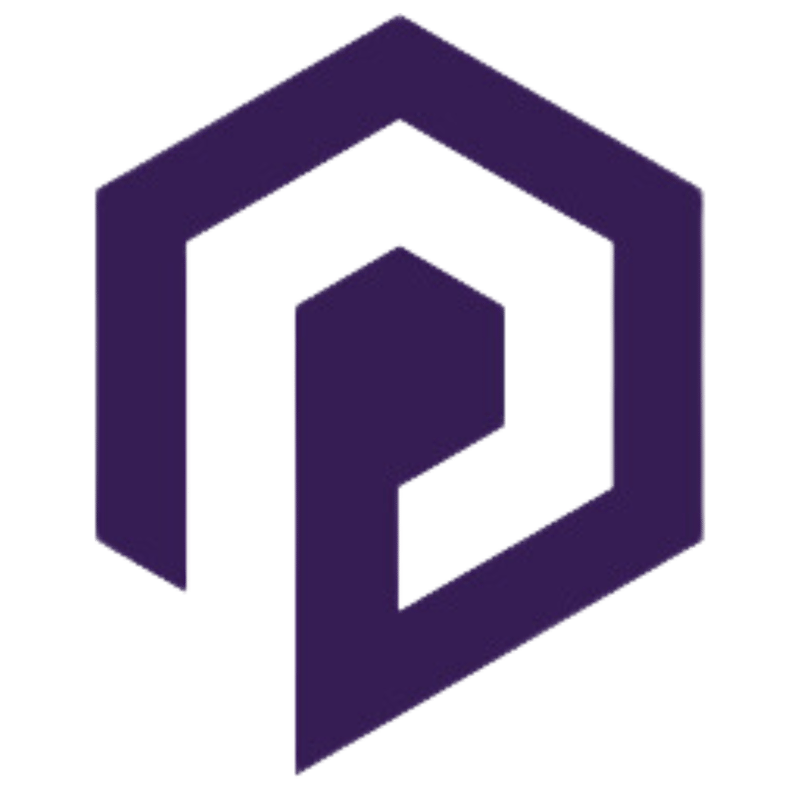How to Become a Medical Biller and Coder in Rhode Island

Want personalized recommendations?
Let's match you to the right program

Medical billers and coders play a vital role in the healthcare industry by ensuring accurate and timely billing and coding of medical procedures and services. They are responsible for translating medical records into standardized codes, submitting claims to insurance companies, and managing patient billing.
Article continues after recommendations
Recommended for you
Responsibilities of a Medical Biller and Coder
-
Reviewing medical records and assigning appropriate codes for diagnoses, procedures, and services
-
Ensuring compliance with coding guidelines and regulations
-
Submitting claims to insurance companies and following up on any denials or rejections
-
Verifying patient information and insurance coverage
-
Communicating with healthcare providers and insurance companies to resolve billing issues
Work Settings for Medical Billers and Coders
Medical billers and coders can work in a variety of healthcare settings, including:
-
Hospitals and medical centers
-
Physician offices and clinics
-
Insurance companies
-
Nursing homes and long-term care facilities
-
Billing and coding companies
How to Become a Medical Biller and Coder in Rhode Island?
To become a medical biller and coder in Rhode Island, first complete education requirements like an associate's degree or certificate program. Then, earn certification such as Certified Professional Coder (CPC) or Certified Billing and Coding Specialist (CBCS). Finally, search for job opportunities in the field, utilizing specialized skills to secure a rewarding career and competitive salary.
Requirements to Become a Medical Biller and Coder in Rhode Island
To become a medical biller and coder in Rhode Island, you will typically need the following qualifications:
-
Education: Most employers prefer candidates with a postsecondary certificate or associate degree in medical billing and coding. These programs provide training in medical terminology, anatomy, coding systems, and billing procedures.
-
Legal Requirements: While not mandatory, certification can enhance job prospects. The American Academy of Professional Coders (AAPC) and the American Health Information Management Association (AHIMA) offer nationally recognized certifications for medical billers and coders.
Finding Medical Biller and Coder Classes in Rhode Island
If you're interested in pursuing a career as a medical biller and coder in Rhode Island, Dreambound is the largest platform for finding and comparing vocational training programs. They offer a comprehensive list of medical billing and coding classes, including those in Rhode Island.
You can find medical billing and coding classes in Rhode Island on Dreambound's website. Dreambound provides detailed information about each program, including course content, duration, cost, and student reviews. This makes it easier for you to find classes near you that fit your specific needs and preferences.
Start your journey to becoming a medical biller and coder in Rhode Island by exploring the options available on Dreambound.
Exploring a Career in Medical Billing and Coding Outside Rhode Island
For those inspired to become a Medical Biller and Coder but living in a different state, achieving your ambition is still very much a possibility. You could explore becoming a Medical Biller and Coder in Colorado, Kansas, Nebraska, Virginia, or Wyoming. And if you're not near any of these, Dreambound is here to assist by offering an easy way to find and compare Medical Billing and Coding classes by entering your zip code. With the right mindset and resources like Dreambound, starting a career in healthcare is possible from any place.
Get courses selected just for you
Try our powerful search engine
Article continues after recommendations
More recommendations for you
How do I get my Medical Biller and Coder certification?
If you are interested in pursuing a career in medical billing and coding, getting certified is an important step to boost your chances of landing a job in the field. Certification demonstrates your knowledge and competency in the field, making you a valuable asset to potential employers. Here are the steps you can take to get your medical billing and coding certification:
-
Research and choose a reputable certification program: There are several organizations that offer certifications for medical billers and coders, such as the American Academy of Professional Coders (AAPC) and the American Health Information Management Association (AHIMA). Take the time to research different certification programs and choose one that is widely recognized and respected in the industry.
-
Meet the eligibility requirements: Each certification program has its own set of eligibility requirements that you need to meet in order to qualify. These requirements may include a high school diploma or equivalent, completion of a coding training program, and a certain number of years of work experience in the field. Make sure you review the requirements for the certification program you have chosen and ensure that you meet them before applying.
-
Enroll in a training program: While not always mandatory, completing a medical billing and coding training program can greatly enhance your knowledge and skills in the field. These programs are offered by vocational schools, community colleges, and online education platforms. Look for programs that are accredited and cover topics such as medical terminology, anatomy, coding systems, and billing procedures.
-
Prepare for the certification exam: Once you have completed your training program, it's time to start preparing for the certification exam. The exam will test your knowledge of medical coding, billing, and related topics. It is important to study and review the exam content thoroughly. Many certification programs offer study materials, practice exams, and even online courses to help you prepare.
-
Schedule and take the certification exam: After you feel confident in your knowledge and preparation, you can schedule your certification exam. The exam is usually proctored and can be taken either online or at a testing center. Make sure to arrive well-prepared and well-rested on the day of the exam. Once you pass the exam, you will receive your certification.
-
Maintain your certification: In order to maintain your medical billing and coding certification, you will need to meet certain continuing education requirements. This may involve completing a certain number of continuing education units (CEUs) or participating in professional development activities. Make sure to stay up-to-date with the latest industry changes and advancements to ensure that your certification remains valid.
By following these steps, you can obtain your medical billing and coding certification and position yourself for a successful career in the field.
How do I get a job as a Medical Biller and Coder?
Once you have obtained your medical billing and coding certification, the next step is to find a job in the field. Here are some tips to help you secure a job as a medical biller and coder:
-
Polish your resume: Your resume is your first impression to potential employers, so make sure it is well-organized, error-free, and highlights your relevant skills and experience. Include any internships, training programs, or volunteer work related to medical billing and coding. Tailor your resume to match the specific requirements of the job you are applying for.
-
Network: Networking is a powerful tool when it comes to finding job opportunities. Reach out to professionals in the industry, join relevant professional associations, and attend industry events and conferences. Building relationships with people in the field can lead to job referrals and recommendations.
-
Utilize job search platforms: There are many job search platforms that specialize in healthcare and medical billing and coding jobs. Use these platforms to search for job openings in your area and apply to positions that match your qualifications. Be proactive and regularly check for new job postings.
-
Prepare for interviews: Once you start getting interview requests, it is important to prepare for them thoroughly. Research common interview questions for medical billers and coders and practice your responses. Be prepared to demonstrate your knowledge and skills in the field and showcase your ability to work accurately and efficiently.
-
Gain practical experience: If you are finding it difficult to land a job right away, consider gaining practical experience through internships or entry-level positions. This will not only provide you with valuable hands-on experience but also allow you to build connections in the industry and increase your chances of getting hired for a full-time position in the future.
-
Stay up-to-date with industry trends: The field of medical billing and coding is constantly evolving, with new codes, regulations, and technologies being introduced regularly. Stay up-to-date with the latest industry trends and advancements by reading industry publications, attending webinars, and participating in continuing education programs. This will make you a more competitive candidate and increase your chances of getting hired.
By following these tips and staying persistent, you can increase your chances of finding a job as a medical biller and coder and kick-starting your career in the field.
Career Paths and Opportunities after Becoming a Medical Biller and Coder
Once you have become a certified medical biller and coder, there are various career paths and opportunities available to you. Here are some of the potential career paths you can explore:
-
Medical Coding Specialist: As a medical coding specialist, you will be responsible for assigning codes to medical procedures and diagnoses for billing purposes. This role requires a deep understanding of coding systems such as ICD-10 and CPT, as well as strong analytical skills and attention to detail.
-
Medical Billing Specialist: In this role, you will be responsible for processing and submitting medical claims to insurance companies, ensuring that the correct codes and documentation are included. You will also be responsible for following up on unpaid claims and resolving any billing issues.
-
Medical Records Technician: Medical records technicians are responsible for organizing and maintaining patients' medical records, ensuring that they are accurate and up-to-date. This role requires knowledge of medical terminology, coding systems, and data management.
-
Medical Auditor: Medical auditors review medical records and claims to ensure compliance with coding and billing guidelines. They identify any errors or discrepancies and provide recommendations for improvement. This role requires strong analytical and problem-solving skills, as well as knowledge of coding and billing regulations.
-
Coding Compliance Specialist: Coding compliance specialists ensure that medical coding practices are in compliance with industry standards and regulations. They conduct audits, provide education and training to coding staff, and implement policies and procedures to improve coding accuracy and compliance.
-
Medical Coding Educator: If you have a passion for teaching, you can pursue a career as a medical coding educator. In this role, you will train and educate aspiring medical billers and coders, either through vocational schools, community colleges, or online education platforms.
These are just a few examples of the career paths you can pursue after becoming a medical biller and coder. With the right experience and additional certifications, you can also explore opportunities in management, consulting, or even starting your own medical billing and coding business.
Final Thoughts
Becoming a certified medical biller and coder opens up a world of opportunities in the healthcare industry. By following the steps to obtain your certification and actively pursuing job opportunities, you can start a rewarding career in this field. With the right skills, knowledge, and dedication, you can make a positive impact on the healthcare system by ensuring accurate and efficient billing and coding practices. So, take the first step towards your career as a medical biller and coder, and start your journey today!
If you're thinking of a new career path, Dreambound offers in-depth guides to understand various job choices:

Athena is Co-founder and CEO of Dreambound.





